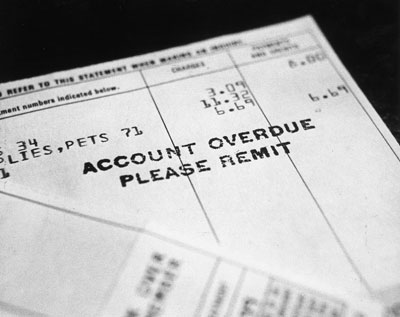Glassman, Wyatt, Tuttle & Cox, P.C. assists creditors and collection agencies with claims asserted under the Fair Debt Collection Practices Act (FDCPA) and other state and federal regulations. Our scope of practice includes representing a creditor when it is sued alongside a debt collector for the alleged unlawful business practices of a debt collection agent. Our Firm does not represent debtors seeking to file claims against creditors.
Debt Collection Services & Debt Collection Laws
Debt collection laws regulate both collection agencies and attorneys. The Fair Debt Collection Practices Act (FDCPA) prohibits debt collectors from using abusive, unfair, or deceptive practices. Under the FDCPA, a debt collector is someone who regularly collects debts owed to others. This includes collection agencies, lawyers who collect debts on a regular basis, and companies that buy delinquent debts and then try to collect them.
As of the preparation of this website, under the FDCPA it is unlawful for debt collectors to engage activities such as the following:
- Calling before 8 a.m. and after 9 p.m.
- Continuing to call you after you have informed them in writing that you dispute the debt
- Calling you at work after you requested them to stop
- Failing to inform you that you have a right to dispute the debt
- Adding undisclosed fees and costs to the debt
- Informing your employer or relatives about the nature and amount of the debt
- Threatening legal action that will not be taken
- Threatening to have you arrested or charged with a crime in conjunction with the debt
Many times debtors file claims under the FDCPA against a creditor alleging these violations when, in fact, no such violation has occurred. Our attorneys stand ready and willing to assist in the defense of FDCPA claims on behalf of creditors and/or third party agents.
Our Team of Lawyers if Ready to Help
If you operate a bank, debt buyer, or collection agency, there are several acronyms that you likely know quite well: FDCPA (Fair Debt Collection Practices Act), TCPA (Telephone Consumer Protection Act), and FCRA (Fair Credit Reporting Act), just to name a few. While these actions may be low-value actions individually, in the aggregate these claims have the potential to jeopardize financial distress to your business.
Consumer debtors when filing claims against your business may utilize a whole other smattering of acronyms to drive up your costs and place you under scrutiny. The following acronyms probably sound pretty familiar: CFPB (Consumer Financial Protection Bureau), FTC (Federal Trade Commission), AG (Attorney General), and BBB (Better Business Bureau). A high volume of complaints in any of these areas can lead to state or federal enforcement action.
Congress passed the FDCPA in 1977 to “eliminate abusive debt collection practices” and to protect law-abiding debt collectors from being put at a competitive disadvantage by the sharp practices of rule-breaking debt collectors. To achieve these goals, the FDCPA includes a private right of action for consumers, who can recover damages and attorneys’ fees for violations of the statute. The statute does not, however, give a debtor the right to bring false and misleading factual assertions against a hard working business.
We stand ready to assist you with your FDCPA and similar claims. For more information, please email us or fill out this form today:




